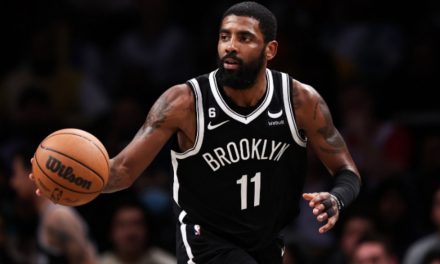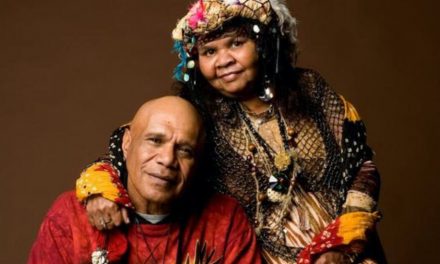From left: Tayla Harris, Magda Szubanski and Leigh Sales, high-profile women all subjected to vicious online trolling.
There are some questions that float around in my head for which I have no apparent answer. Why do people eat Brussels sprouts? Why do Australian commentators call defence “DEE-fence”? Why does my son always wake up early on a Sunday morning?
But there is one question that casts a more sinister shadow – why do people think it’s OK to engage in cyber abuse? What in their DNA makes them think it’s acceptable to personally abuse someone they don’t know; someone they’ve never met? To threaten harm, rape and death?
Two recent cases have brought this question into sharp focus – the vicious personal attacks on Magda Szubanski for her part in a campaign encouraging people to follow rules during the COVID-19 lockdown, and the vile threats towards Richmond defender Dylan Grimes over a free kick. Yes, a free kick.
Concerned about the safety of his family, Grimes reported the incident. Police arrested a 39-year-old man and charged him with stalking, using a telecommunications device to menace, making a threat to commit a sexual offence, and other charges. A second man, aged 54, has also been charged.
Sadly, these are not isolated incidents. Research also tells us that there is a gendered nature to this deplorable behaviour.
The United Nations reports that 73 per cent of women have been exposed to or have experienced some form of online violence, and that women are 27 times more likely to experience online harassment than men.
As a woman who uses social media, a quick scroll down Twitter, Facebook or Instagram tells me how prevalent online misogyny is. Just check out the sexualised abuse ABC presenter Leigh Sales cops after every big interview.
Underpinning this type of abuse is a go-to bag of harmful, outdated attitudes and beliefs about women. Everything a troll spews is an attempt to reinforce the idea that women are inferior.
Online harassers who target women for simply being women want to silence them and keep them in a box.
They have much in common with 19th century anti-suffragists who argued “suffrage would cause women to become men; upset brewery interests and the Bible”.
Like their forefathers, they also have an aversion to facts. Facts are their kryptonite. And sport is a place where they like to gather – like flies to excrement. Sport has a big troll scene.
Women have had to fight tooth and nail for their place in sport.
When Baron Pierre de Coubertin resurrected the modern Olympics in 1896, women were still excluded from participating. The Baron was particularly offended by the thought of a woman sweating, as described in Mary Leigh’s “Pierre de Coubertin: A man of his time”.
PLEASE HELP US CONTINUE TO THRIVE BY BECOMING AN OFFICIAL FOOTYOLOGY PATRON. JUST CLICK THIS LINK.
“Indecency, ugliness, and impropriety were strong reasons, in Coubertin’s view, for excluding women from the Olympic Games,” she wrote. “His aesthetic sense was shocked by the sight of lightly-clad, sweating women engaged in strenuous activity.”
These days, disciples of the Baron’s way of thinking need no platform. They have all they need at home – anonymity, insecurity and a keyboard.
The popular default position of this kind of (non)-thinker is to compare women’s sport with men’s, because women’s sport couldn’t possibly exist in its own right.
They fail to understand that men have been kicking with the wind since the day they were born – centuries-old traditions, customs and attitudes shaped sport as a masculine pursuit – which is why men have more opportunities, pathways and sporting competitions.
In 2019, Plan International Australia released the results of a study which analysed comments left on Facebook posts from major broadcasters such as the ABC, 10 Sport, Fox Sports and Channel 7.
It found female athletes are subjected to three times the online abuse directed at their male counterparts, and that the majority of that abuse was either sexist, of a sexual nature, or derogatory to women’s sport in general.
But there are reasons to be optimistic – these pitiful haters who target women in sport are woefully out of step with society.
Women’s sport is growing globally. When the will is there to invest in women, glorious things happen – just look at the 86,174 who turned up at the MCG for the Women’s T20 World Cup Final in March this year.
But the question remains – how do we as a society tackle the problem of online abuse?
Magda Szubanski, Dylan Grimes, Tayla Harris, Leigh Sales, Eddie Betts and a host of other public figures have used their platform to call out this abhorrent behaviour.
But, as a community, we have to do more by demanding greater vigilance and monitoring of these sites. Sporting clubs with social media channels need to do more in this area, too. But as with everything, the key to meaningful change is education about respectful relationships from an early age.
How long have we all been discussing the dark underbelly of social media?
Victoria Police acted quickly in the Grimes case, and that’s a good thing. I’d like to see the same kind of fast-moving support for women athletes, journalists, writers and commentators on social media who experience cyber hate every day.
We all have the right to express strong opinions about any topic. And we all have the right to live the life we want for ourselves without fear or abuse.
The Baron is long dead. His views should be too.












